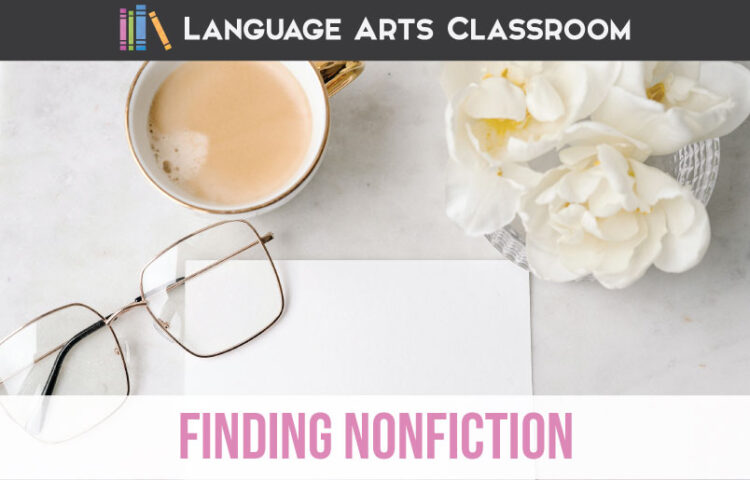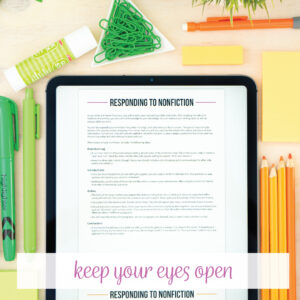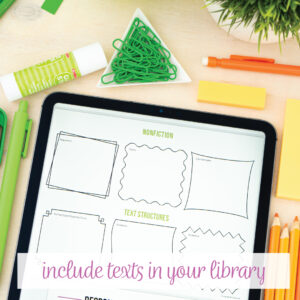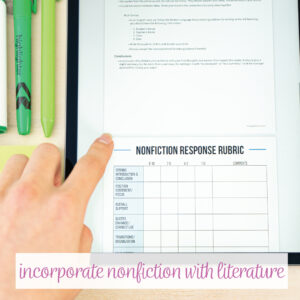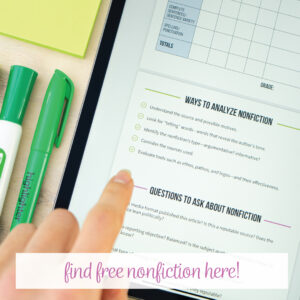Looking for high-interest nonfiction resources for high school students can take time. Free or paid, finding nonfiction that will help you meet standards and interest students can be an endless search.
I am continuously searching for appropriate nonfiction to share with my secondary ELA students. Often, I need short nonfiction articles to add to a poetry, literature, or public speaking lesson. Below, I’ve included places where I find nonfiction PDFs for English class. Hopefully, you can pick and choose what will work for your community.
Before I begin, my belief about informational texts is that they should be present in a variety of ways, and my ideas below reflect that. For instance, I desire my students to hone in on a topic, to really become impassioned about a topic that influences them. For that reason, I really use my librarian to bring me resources to flesh out lessons and encourage further learning about whatever topic we’re covering in class. Additionally, in my classroom library, I want to include nonfiction texts. My First Chapter Friday choices should also include nonfiction.
So! How can I include nonfiction naturally in my class? My ideas are below.
Keep your eyes open.
I came across a nonfiction resource today, and I think it will interest students. Many of our students focus on college. . . and for good reason: some will be there in four years or less.
Sure, I was intrigued when I read about Starbucks CEO announcing the company would pay for employee’s college tuition. I was skeptical, but excited.
Like many future teachers, I worked multiple jobs through college, and I still had loans. A boost would have been helpful. I continued reading about the free college assertion, because I wanted to know how true it was. It is true (with rules) and Starbucks employees are ready to get their educations.
Sure enough, my continued researching found an opposing viewpoint today. “Starbucks price hike” by Pat Schneider highlights:
Other analysts said the program fails to address systemic problems in higher education and financial aid, and even threatens to exacerbate them.
Include texts in your library.
One of the easiest way to incorporate nonfiction into your classroom is to display books for students. I’ve reviewed several memoirs and other pieces of nonfiction:
When I shop at thrift stores, I grab nonfiction “coffee table” books off the shelves. Those books are full of pictures and easily accessible information. I’ve discovered books about golf, cars, presidents, and animals. I even have a nonfiction book about animal waste, and it is one of the more popular books in my library.
Adding nonfiction books is a great way to naturally add informational texts to students’ reading diets. Plus, pulling excerpts from nonfiction books is a quick option. I use Small PDF to help me with
Incorporate nonfiction with literature.
You might teach more nonfiction than you credit yourself. Do you teach the background of stories, either the author’s life or pieces about the setting? For instance, when I teach The Hunger Games, I pull current data about poverty, food scarcity, and income inequality. Unfortunately, I always find a current article.
When I teach a Shakespeare play, we read about Queen Elizabeth, Shakespeare, and the play’s time period.
As you incorporate informational texts with literature, ensure that you are meeting standards. With a few additional questions or activities, you might be checking off more standards than you realize.
Finally, directly connect the facts to the literature. Students might not intentionally realize how that information influences the literature. Be sure to model realization of that connection.
Find free nonfiction resources for high school students.
Free nonfiction resources for high school students? Here is where I browse:
Common Lit
I use Common Lit, but sometimes, I want my students off their iPads and not answering multiple choice questions. Plus, all of the answers are online for free! Students manage to find previous answers which hurts an authentic discussion and brainstorming session.
Still, I use the articles and create my own questions.
News ELA
Recently I stumbled upon News ELA, and I have found some quality materials. Sometimes I ask students to search the homepage and present an article of interest to the class.
New York Times
I pay for the NYT, but you can access many articles for free. Download a few, and you’ll have nonfiction article PDFs for students.
ESPN
Students love reading articles from ESPN. Personally, I am not a huge sports fan. I know many of my students are, and when a big sporting event happens, I might share an article with the class to interest students with which I might not already connect.
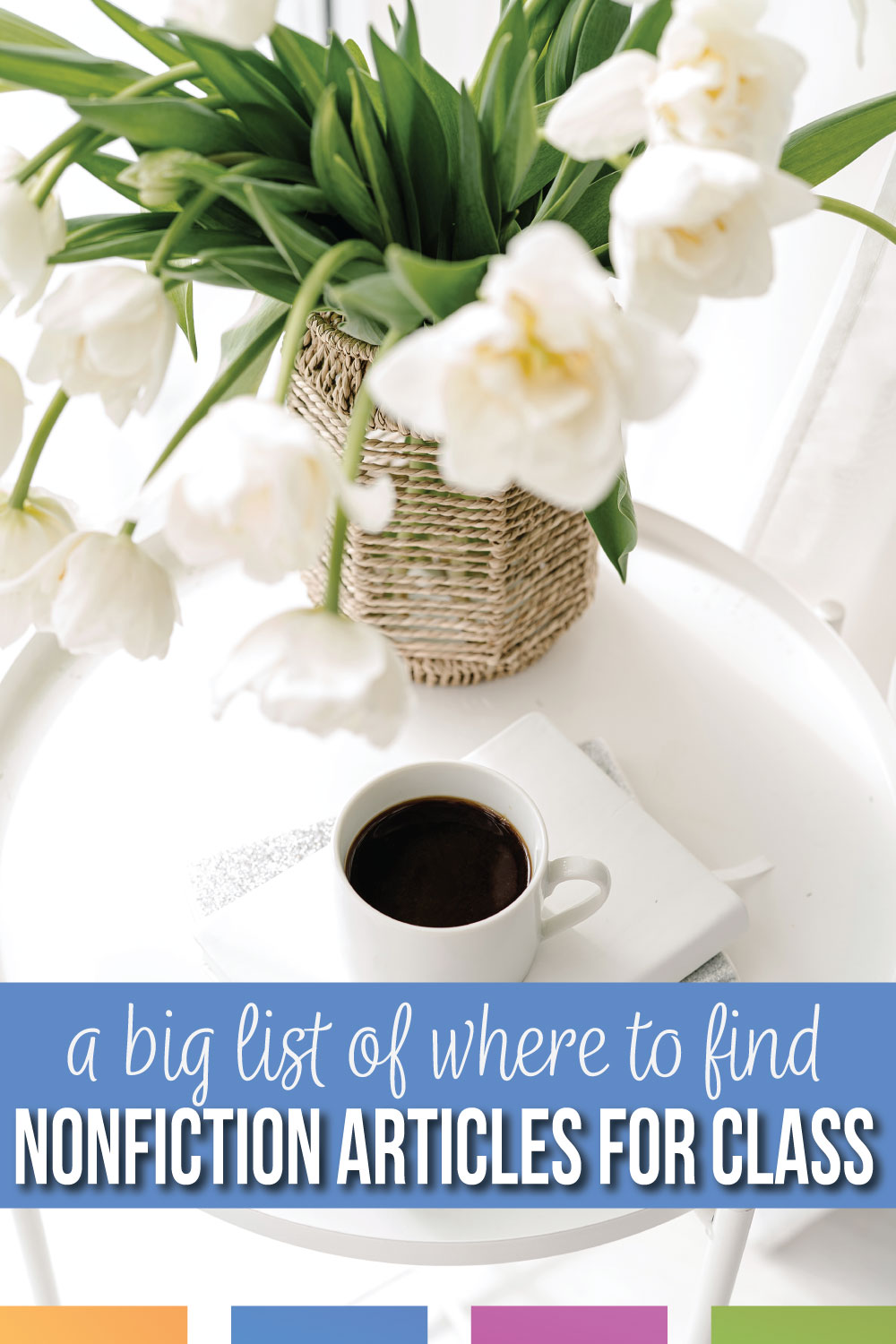
Do you have any other places to find nonfiction articles for high school students? Share your ideas below.

